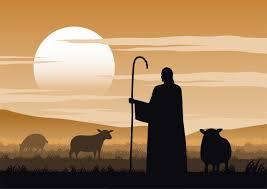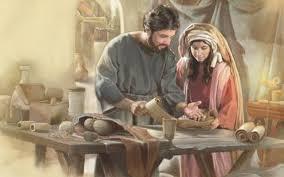Shepherds and Teachers
4: 11d
Furthermore, He gave some people as shepherds and teachers.

The Hebrew word shepherd (roeh) evokes a most beautiful picture. From ancient times, the duties of a shepherd would include feeding, protecting, and guiding. Of course some sheep go astray on their own perilous path and need rescue. Sha’ul notes that ADONAI has equipped some within the Body of Messiah to fulfill the ministry of a spiritual shepherd, a vital calling since the sheep of Yeshua need to be watched over. The Greek syntax here makes a direct connection between the shepherds and teachers. It could even be considered one gift, teaching-shepherds, for some people. Either way, the importance of good shepherding and good teaching cannot be over-emphasized in the spiritual life.163
The shepherd’s job was to protect his flock and guide them to good pastures with plenty of food and slow-moving, easily accessible water. If fed grass of poor quality, the sheep would be malnourished. If the water moved too quickly, the sheep would be too afraid to drink from it. Guiding the flock of sheep to a good location was an extremely important task for a shepherd because good pastures kept his flock healthy.
A shepherd typically carried a few items with him to aid him in his task of caring for the sheep. First, he would have a rod. The rod was a sturdy stick with a knob at one end. Sometimes the knob even had nails in it to make it a better weapon. The shepherd used his rod to protect his sheep from wild animals or other threats. The shepherd also carried a long staff. The staff was used as a walking stick for the shepherd, who also used it to maneuver sheep when needed. For further protection, shepherds often carried a sling, consisting of a leather pouch on a string. Placing a stone in the pouch, a skilled shepherd could fling rocky projectiles over a good distance in order to scare off or wound wild animals.
During biblical times, families in the Middle East relied upon sheep to provide food, wool, and sheepskin. Because sheep were so valuable, shepherds would stay with the flock to protect them day and night. Frequently, the youngest boy in the family served as a shepherd until he grew older and could do harder manual labor. David was a shepherd for his family, and he often used references to shepherding in the book of Psalms. One of the most well-known psalms, Psalm 23, describes the Lord as our Great Shepherd.
The Lord is my shepherd, I lack nothing.
He makes me lie down in green pastures,
he leads me beside quiet waters,
He refreshes my soul.
He guides me along the right paths
for his name’s sake.
Even though I walk
through the darkest valley,
I will fear no evil,
for you are with me;
your rod and your staff,
they comfort me.
You prepare a table before me
in the presence of my enemies.
You anoint my head with oil;
my cup overflows.
Surely your goodness and love will follow me
all the days of my life,
and I will dwell in the house of the LORD forever.
Notable shepherds in the TaNaKh, besides David, are Abel, Moses, Amos, and, for a time at least, Zechariah. In the B’rit Chadashah, shepherds near Bethlehem are the ones chosen to witness the heavenly announcement of Messiah’s birth (see the commentary on The Life of Christ, to see link click Ar – The Shepherds and the Angels). And Yeshua claims to be the Good Shepherd who truly cares for His sheep – so much so that He lays down His life for them (see The Life of Christ Gu – The Good Shepherd and His Sheep). Just as ADONAI provides shepherds to lead and care for His flock here on earth, so does God care for us. Even when life gets difficult, God protects us spiritually, guides us, and never leaves us. We can trust that He is the perfect Shepherd.164
Dear Heavenly Father, Praise You for being such a wonderful Shepherd! You care so tenderly for each of Your sheep. What a comfort it is to know that You are always present, ready and willing to protect and guide me. For God Himself has said: I will never leave you or forsake you (Hebrews 13:5c). Life on earth gets so busy with so many necessary things to do, but You are never too busy to shepherd me. You are always right with me. Yeshua answered and said to him: If anyone loves Me, he will keep My word. My Father will love him, and We will come to him and make Our dwelling with him (John 14:23). How amazing that You abide with me, never leaving me but living with me!
Your steadfast love is so wonderful to always be able to run to. When problems seem so huge that they seem impossible for us to solve, your love is the bedrock we can always run to. Even when David was being sought after to be killed by King Sha’ul and the entire army, David was calm and trusting in you. He knew that not only are You greater than any king and his army, Your love is still there in the midst of the problem. O God, You are my God, earnestly I seek You. My soul thirsts for You. My flesh longs for You in a dry and weary land, where there is no water. . . Since Your lovingkindness is better than life, my lips will praise You. (Psalms 63:1, 3). And just like David, we need to always trust in Your steadfast love – no matter what is happening, You are our Great, loving and powerful Shepherd. You are in control- always! In Messiah Yeshua’s holy Name and power of His resurrection. Amen
Paul declares that if you are a teacher, use your gift in teaching (Romans 12:7a). The meaning is simple and straightforward. Didaskon (teaches) refers to the act of teaching, and didaskalia (teaching) can refer to what is taught as well as to the act of teaching it. Both of those meanings are appropriate to this gift. The believer, if you are a teacher, is divinely gifted with a special ability to interpret and present God’s truth understandably. The primary difference between teaching and prophesying is not in content but in the distinction between the ability to proclaim and the ability to give systematic and regular instruction in God’s Word. The gift of teaching could apply wherever God’s truth is taught. The early Messianic community was characterized by regular teaching (Acts 2:42). The Great Commission includes the command: Go therefore and make disciples of all nations – teaching them to observe all that I commanded you (Matthew 28:19-20 NASB). This spiritual gift includes features of both preaching and teaching.

Women have all the spiritual gifts that men have except being the sole teacher of a Messianic congregation or the sole pastor of a church. Timothy was the pastor of the church at Ephesus and addressed this issue directly (see my commentary on Genesis Lv – Women and Spiritual Gifts). From his inspired writing, it seems clear that women can teach other women, children, teenagers, and, under the authority of their husband, they can teach men (see the commentary on Acts Cf – Priscilla and Aquila Teach Apollos), or a mixed group as a team. A great example of women’s ministry is Kristi McLelland’s (see her teaching ministry at newlensbiblicalstudies.com). However, there are some “progressive” women today who are like Eve in the Garden of Eden. ADONAI said to her: You are free to eat from any tree in the garden, but you must not eat from the tree of the knowledge of good and evil (Genesis 2:16-17a). And today, Messiah says to these “progressive” women, “You are free to exercise any spiritual gift that I bless you with, but you must not be the sole teacher of a Messianic congregation or the sole pastor of a church.” And like Eve, they say, “Well, if that’s the one spiritual gift I can’t have; then that’s exactly the one I want!”



Leave A Comment